Whatever the breed, dogs will always be incredible animals, unique for their immense capacity for love and relationship, loyalty, and intelligence.
No wonder so many people cannot help but breed dogs–whether as a hobby or a business.
In fact, almost anyone can breed dogs, but whether that’s a good thing is another matter.
Technically, you can breed dogs without papers as long as you are not breeding a large number of dogs for selling and intend for the litter to be pets only, not for breeding or use in competitions. However, this practice, called “backyard breeding,” is often considered irresponsible.
Breeding dogs is a huge responsibility, and a lot goes into guaranteeing the purity of a line.
People who breed dogs without papers cannot know the dogs’ history, pedigree, and even negative traits that can be passed on to their offspring.
So though you can go into small-scale breeding of dogs without papers, perhaps it’s best not to–let’s find out why.
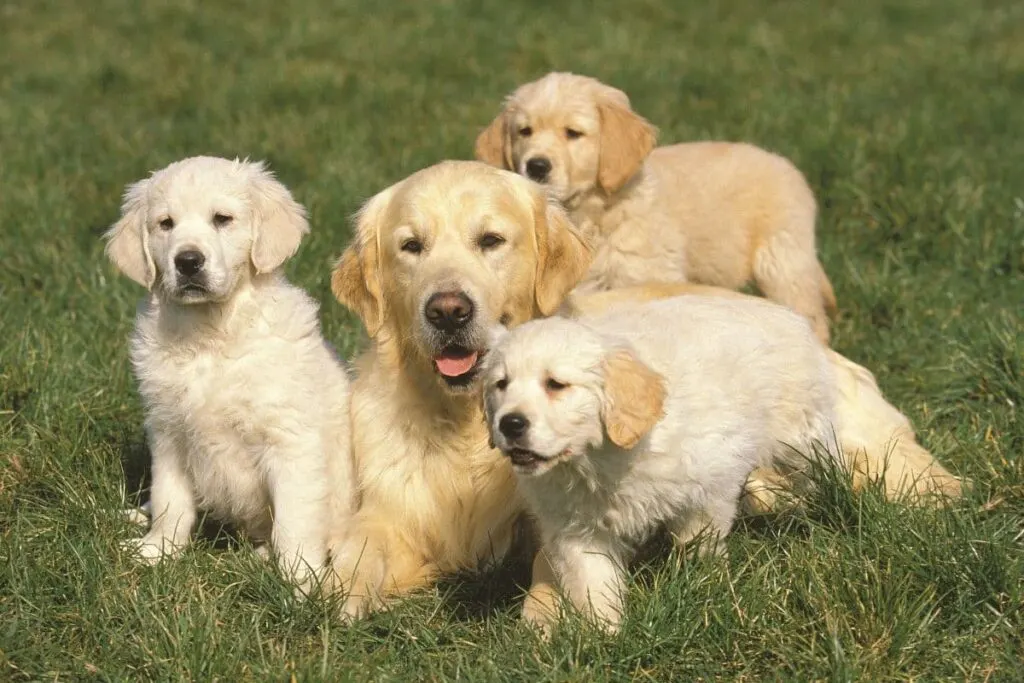
Is It Legal To Breed a Dog That Doesn’t Have Papers?
By law, it is legal to breed a dog that doesn’t have papers or to do so without a breeding license issued by the USDA, as long as you don’t intend to sell the litter, do not have more than four breeding bitches, and are not breeding more than 20 dogs in your facility or home.
Beyond these standards, the law requires you to obtain a breeding license, which means that all your breeding dogs should be registered, whether or not they are purebred.
You’ll also have to have a license if you are breeding to sell the litter, using the litter for further breeding, or raising competition dogs.
While it is perfectly legal to go into small-scale or backyard breeding, it is not a recommended practice in the dog breeding industry, as many of the unwanted and cruel practices related to breeding, care, and raising of dogs stem from these backyard breeders.
Why Breeding of Dogs Without Papers Is Unethical
The number one reason problems arise from these breeding practices is the lack of regulation by the authorities.
Consequently, backyard breeders can practically do whatever they want with their dogs, regardless of whether the care they provide is sufficient and humane.
As it is, the standards set by law, particularly in the Animal Welfare Act, can be considered way below the bare minimum when ensuring that people treat animals properly–from breeding to homing.
For example, no provision in this Act requires breeders to ensure that dogs have sanitary places to live and are fed the proper diet.
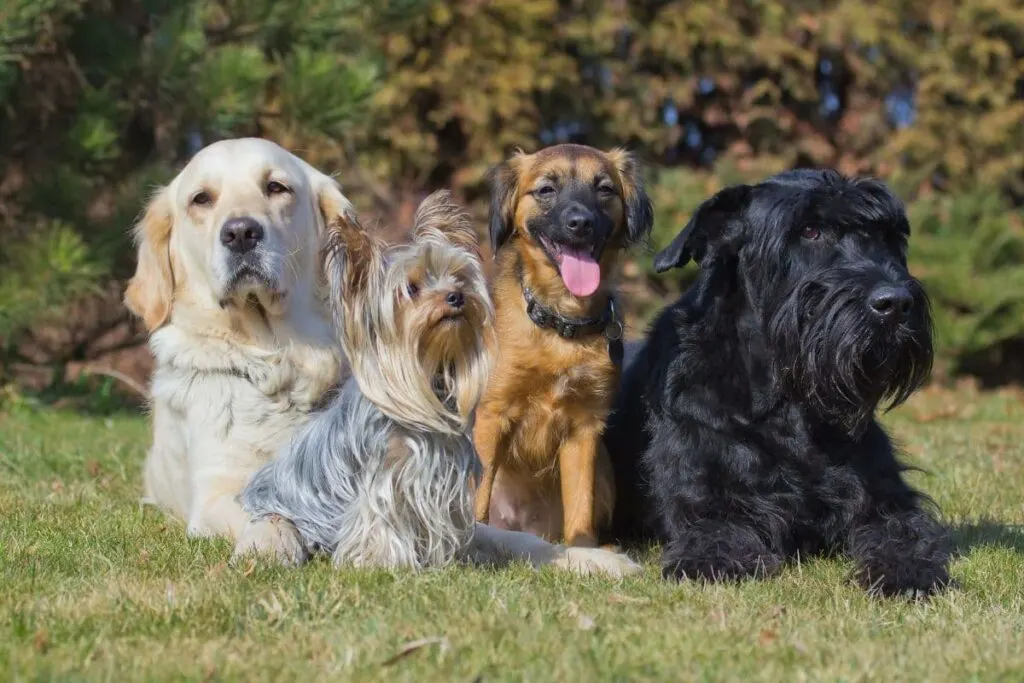
Additionally, no provision ensures that they are properly socialized at a young age to minimize (if not eliminate) the chances of the puppies growing into aggressive and reactive dogs.
Without federal regulation, backyard breeders and puppy mills can use legal loopholes to continue inhumane practices to maximize profit.
If they can do that even when licenses are in place, you can only imagine what kind of things happen when dealing with unlicensed, unregulated backyard breeders.
The bottom line is that while small-scale breeding of dogs without papers may be perfectly legal, it is not ethical.
It is not a humane practice and benefits neither future dog owners nor the dogs themselves–many of which may, unfortunately, end up being unwanted puppies that get put down.
So if you have (or plan to have) a dog and don’t intend to breed, here are some things that you can do as a responsible dog owner:
- Spay or neuter your dog. As they mature, dogs will naturally want to mate, and while this is normal, it’s best to neuter your dogs so that you don’t contribute to the massive dog overpopulation problem in the country.
- Register your dog. If it’s not already registered, there are ways to acquire dog registration, whether for purebred or non-pure-bred dogs.
- Adopt, don’t shop. An average of 1.5 million shelter animals, including dogs, are put down in the US every year, so the least you can do is make sure you don’t add to this number.
- Buy from reputable breeders. If you must buy a dog, do so from reputable breeders to promote proper, regulated breeding practices.
Why You Should Only Breed and Buy Dogs With Papers
Actually, anyone that has a dog can be a backyard breeder–whether intentionally or by accident.
Some dog owners end up with their female dogs pregnant even when they don’t intend to breed.
While that’s not a crime, it’s not ideal, especially if your female dog got pregnant due to inbreeding, which often results in unhealthy pups or pups with birth defects.
To know more, check out my article on accidentally inbred puppies and how you should take care of them.
But also, breeding dogs without papers results in several adverse outcomes that range from inconvenient to heartbreaking.
If you’re still thinking of breeding your unregistered dog, here are a few things to ponder:
Pedigree Is Guaranteed With Registered Dogs
Sure, buying dogs with papers is significantly more expensive, but dogs that are registered and come from a clear lineage are guaranteed purebred, instead of mutts that are labeled such-and-such a breed for the sake of a few extra bucks.
We love dogs no matter their breed, even if they’re not purebred.
They are amazing animals that are intelligent, loving, and loyal companions.
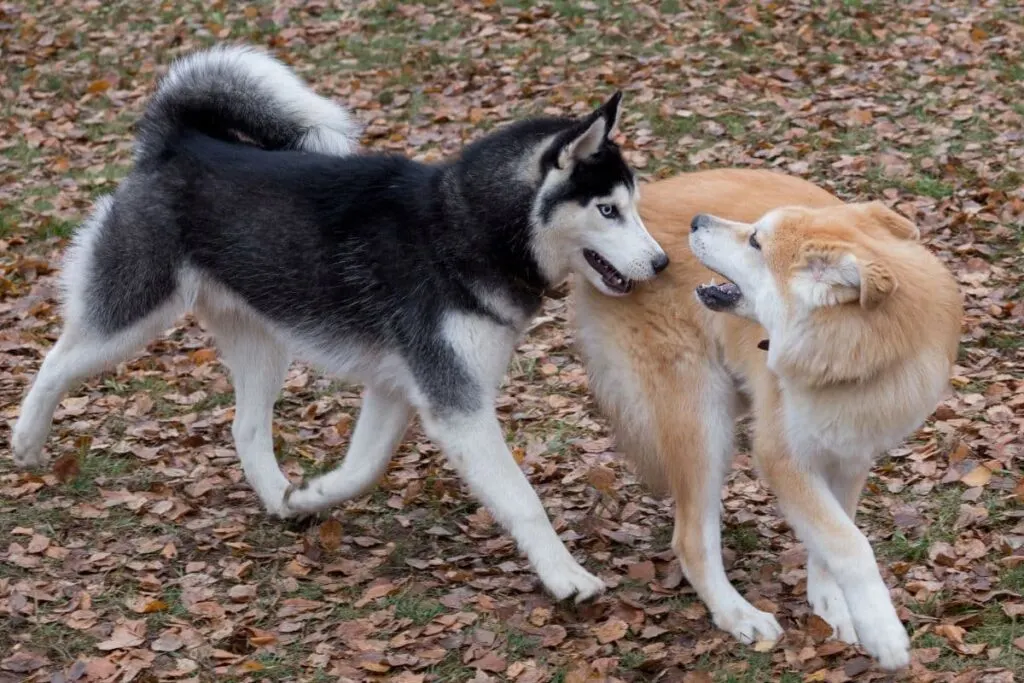
But if you are going into breeding them, you have to make sure that you know the dog’s lineage, history, and background.
Knowing these things will assure you that the offspring will turn out to be healthy and free from birth defects that often result from careless breeding.
Breeders that do not pay attention to the pedigree and history of the dogs run the risk of breeding dogs that have not only physical defects but are susceptible to illness, have a tendency for aggressive behavior, or are poor performers.
People Often Advertise Mutts As Designer Dogs
These days, more and more people love and showcase their designer dogs.
But what are designer dogs really?
Designer dogs are hybrids or a cross between two purebred dogs, e.g., Huskitas, which are a cross between Huskies and Akitas.
I have an entire article dedicated to Huskitas that you can check out to learn more about these dogs and their “special features”.
Now, on the other hand, we have mutts, which are a mix of dogs that are not necessarily purebred.
With a mutt, therefore, you have a dog that may be part labrador, part golden retriever, part pitbull, part dachshund, and so on.
You may see from their physical attributes that they come from certain bloodlines, such as if the dominant breed is that of a Belgian Malinois.
However, you then lose much of the mental sharpness of this working breed as attributes from several other breeds join in the mix.
Because of this, many backyard breeders will claim that their mutts are designer dogs, even when you’re getting mutts.
There is absolutely nothing wrong with mutts, and if the breeder tells you straight away that you’re not getting a purebred or a designer dog, that’s absolutely fine.
However, if you buy to breed from an irresponsible breeder, you may not be able to get the outcomes that you expect when you breed with unregistered dogs.
Allowing Backyard Breeders Promotes Puppy Farms
If you want to breed dogs, it’s best to breed registered dogs because doing so helps promote good practices in dog breeding and care.
Backyard breeding of dogs without papers may be cheaper and infinitely more convenient than getting licenses and adhering to federal standards, but what it actually does is often lead to puppy mills.
Puppy farms start small; they don’t just become large operations overnight.
These breeders start with a couple of dogs until they have 10 or 20, all cramped in tight spaces.
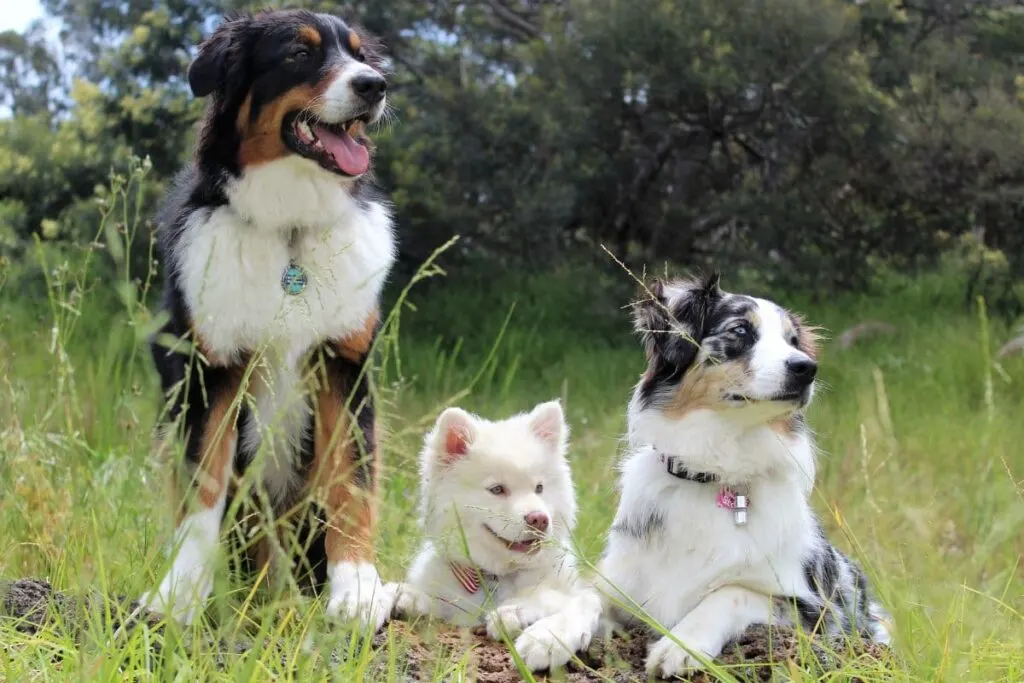
You may currently be breeding your dogs at home without the intention of growing your hobby into a puppy mill.
Unfortunately, the temptation to go from a small hobby to a full-scale puppy farm is immense, especially when you’re already starting to make money out of it.
And, mind you, dog breeding and selling can generate a lot of money–the more dogs you breed, the more money you can potentially earn.
So just don’t go there.
Be a responsible dog owner or breeder instead because even if you don’t eventually dabble in puppy farming, by breeding unregistered dogs in your backyard and giving away the litter or selling them, you are actually promoting the business of puppy mills that get female dogs pregnant over and over and over again.
Proper Dog Breeding Practices
Dog breeders, first and foremost, should be animal or dog lovers.
They should be people who care not just about how litters will turn out but also where they will eventually find homes, how they are raised and taken care of, and whether each dog can live a fulfilled and happy life.
Breeding dogs should not be seen only as means to produce genetically superior offspring but as animals that need our love and attention.
If you want to be a dog breeder, here are some best practices for you to consider.
Research Your Dog’s Breed
Across all breeds, one thing is common: All dogs are incredibly intelligent and capable of forming an ever-deepening bond with other dogs and humans.
But individual dog breeds also have specific traits that breeders should know about before dabbling in breeding.
Spend time learning about your dog’s breed by asking the following questions:
- What are the specific traits that are unique to this breed?
- What activities are this breed uniquely good at?
- How are this breed’s physical attributes different from (and/or similar to) that of other breeds?
- What kind of diet should this breed have?
- How should this breed be groomed and taken care of?
- How much exercise does this breed need?
- What temperament is common to this dog breed?
- What are this breed’s weaknesses?
You can read about your chosen breed, but what’s even better is watching these breeds in action.
Watch how they play, interact with other dogs and humans, and even work.
Working dogs, in particular, are so much fun to watch while they’re in the zone, so to speak, because you get to see their unique ability to switch from normal or play mode to serious work mode.
Being knowledgeable about your dog’s breed is crucial in ensuring that you can provide the best possible care and know which traits you want to see in their offspring.
Know About Common Health Issues
Part of learning about your dog’s breed is finding out what health issues they are most vulnerable to and how to prevent them.
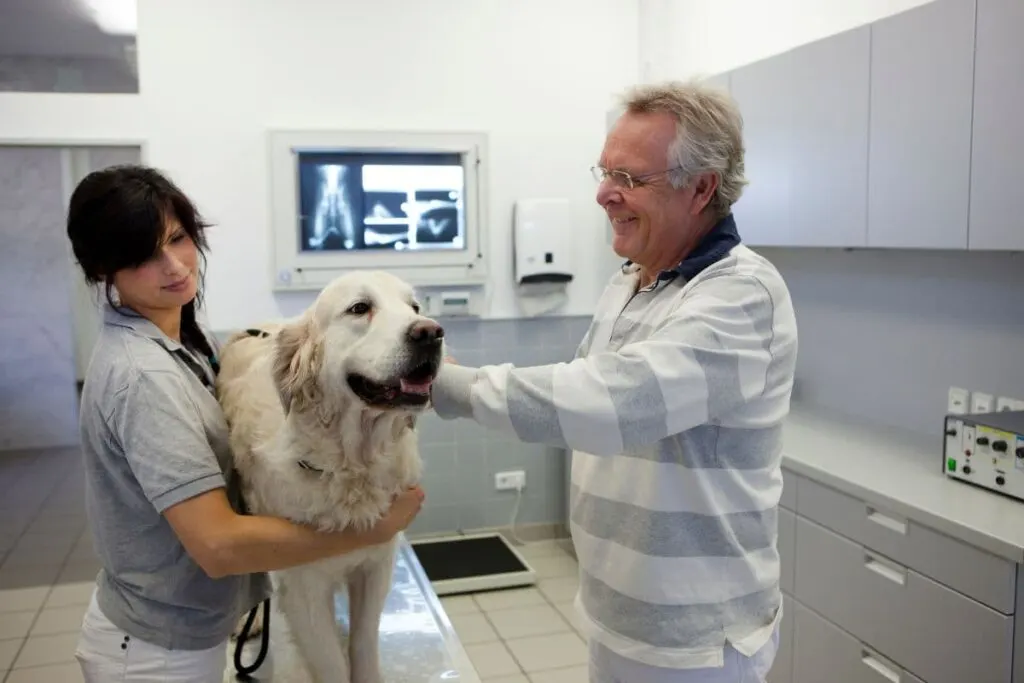
Certain breeds are more prone to specific health conditions.
For example, golden retrievers are prone to suffering from hip dysplasia, a condition that affects their bones.
Knowing this, you should invest in ensuring that your dogs get the right nutrition to support proper skeletal growth and refrain from activities that put them at risk of injury, such as over-exercising or excessive play when puppies are too young.
There are also health issues that dogs can acquire due to poor breeding, including skin allergies and heart disease.
Provide a Good Quality of Life for Each Dog
Responsible breeders make sure that each dog has a good quality of life, which means that their home is kept clean and they are fed quality food and a balanced diet.
It also means they get sufficient exercise and are properly socialized at an early age.
People should not keep dogs in tight-spaced crates or cages for extended periods.
This practice is cruel and can lead to barrier frustration in dogs, where they become aggressive due to being physically restrained from doing what they need or want to do.
A clear example that a dog is not given enough free time is when they begin soiling their crate or beds.
Dogs are clean animals that do not like to poop or pee where they sleep, so one that does so in its bed is obviously stressed out and not getting enough time to eliminate and play.
Final Thoughts
When dog breeders do their job responsibility, they minimize (and hopefully eliminate) the dog overpopulation problem in the country and produce healthy, happy dogs.
Dog papers can sound like such trivial things, but when you look at the bigger picture, you’ll realize just how important they are in dog breeding.
